Past Events

- Riley Hesbacher
- Global Hub
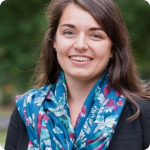
- Kirsten Wesselhoeft, Vassar College
- 4303 Posvar Hall
As part of the Unmasking Prejudice: Confronting Antisemitism, Islamophobia, and Racism Across Europe Spring Lecture Series Lecture Summary: TBD About the Speaker: Kirsten Wesselhoeft is associate professor of religion at Vassar College. She is a scholar of contemporary Islam, drawing on ethnography and political analysis to study Muslim thought and culture in contexts shaped by colonial encounters and secular liberalism. Her first book, Fraternal Critique: The Politics of Muslim Community in France (Chicago, 2025), shows how young engaged Muslims use disagreement and dissent to cultivate community, a value that is in turn stigmatized by political elites. Her scholarly writing has appeared in Political Theology, Journal of the American Academy of Religion, and Sociology of Islam, among other journals. Please note a change in room
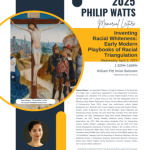
- Noémie Ndiaye
- William Pitt Union Ballroom
Join us for an event featuring Noémie Ndiaye, Associate Professor of English Literature at the University of Chicago, whose research focuses on early modern English, French, and Spanish theater with an emphasis on race. Ndiaye will discuss her award-winning book, Scripts of Blackness: Early Modern Performance Culture and the Making of Race (2022), which explores how performance culture influenced the construction of race in early modern Europe. Her book has received multiple prestigious awards, including the 2023 Bevington Award and the 2023 Rose Mary Crawshay Prize. Ndiaye is also the co-editor of Seeing Race Before Race (2023), which won the 2024 PROSE Award for Art Exhibitions. Don’t miss this opportunity to hear from a leading scholar in the field! Refreshments after the lecture

- Ryan Heng
- Global Hub
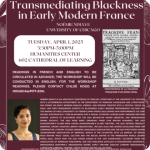
- NOÉMIE NDIAYE
- Humanities Center, 602 Cathedral of Learning
Join us for a workshop with Noémie Ndiaye, Associate Professor of English Literature at the University of Chicago, focusing on early modern English, French, and Spanish theater with an emphasis on race. Her monograph, Scripts of Blackness: Early Modern Performance Culture and the Making of Race (2022), explores how performance culture shaped the racialization of Blackness across Western Europe. Ndiaye's work has won numerous awards, including the 2023 Bevington Award and the 2023 Rose Mary Crawshay Prize. The workshop will be conducted in English, and pre-circulated readings are available upon request from Chloé Hogg at hoggca@pitt.edu.

- Molly McSweeney
- Global Hub
Attention: Undergraduate students! Are you looking to gain experience that will help prepare you for a globally-connected job market? Stop by Drop-In Hours to learn more about getting the Global Distinction added to your academic transcript, receiving special recognition at graduation, and standing out to prospective employers!

- Janet McLaughlin
- Global Hub

- Zharia White
- Global Hub
Are you an international student at Pitt looking to connect, or interested in connecting with international students? Stop by the Nook in the Global Hub on Tuesdays, between 2 and 4 pm during Spring semester, to chat with OIS Outreach Coordinator Zharia White from the Office of International Services!
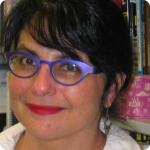
- Belinda Davis, Rutgers University
- Wesley Posvar, Room 5601
Please note a change of time: Keynote Speaker for the Undergraduate Research Symposium: The Discussion will explore one of the means by which primarily young people in West Germany attempted to “revolutionize” everyday life and beyond, through new, explicitly political forms of cohabitation designated Wohngemeinschaften (WGs). WGs served as critical hubs of more conventional popular politics of the era, but also housed intense experiments in remaking the self and relations with others, transcending the nuclear family and the centrality of the couples relationship, and working through ideas and convictions across populations often conceived as incompatible. Part of broader efforts to remake German society from the bottom up, these experiments mark one site of successful youth efforts to transform the world around them. About the Speaker: Belinda Davis is a professor of history at Rutgers University and director of the Rutgers Center for European Studies. She is author or co-editor of five books, including the coedited Social Movements After ’68: Selves and Solidarities in West Germany and Beyond (2022); The Internal Life of Politics: Extraparliamentary Opposition in West Germany, 1962-1983 (forthcoming with Cambridge). She is currently completing work on Voices of the Organized Poor: Learning from the Poor People’s Economic Human Rights Campaign’s Everyday Struggles for Survival and Alternative Futures; and working on an environmental history of modern Europe for Cambridge University Press. She is a member of the Rutgers team participating in the Jean Monnet-funded ValEUs grant, of which the University of Pittsburgh is also a consortium member.
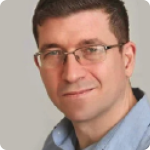
- Daniel Scarborough
- 5601 Posvar Hall
Orthodox Christianity first came to Central Asia along with the Russian conquest in the 19th century. Along with Slavic settlers came Orthodox sacred objects, such as miraculous icons and the relics of saints. Churches, monasteries, and parish communities were build around these objects. During the colonisation process, control over Orthodox sacred objects was contested by the imperial regime, settler communities, and the native population. These objects ultimately became targets of violent conflict during the anti-colonial uprising of 1916, and the revolutionary violence and terror of the following decade. The physical survival of the Orthodoxy in Central Asia was possible due to the collaborative efforts of both settlers and natives, despite the efforts of the colonial regime to utilise the Church for the consolidation of Russian rule. The Orthodox objects and spaces that dot the landscape today comprise part of Central Asia's shared cultural heritage.
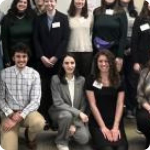
- Posvar Hall
The European and Eurasian Undergraduate Research Symposium is an annual event since 2002 designed to provide undergraduate students, from the University of Pittsburgh and other colleges and universities, with advanced research experiences and opportunities to develop presentation skills. The event is open to undergraduates from all majors and institutions who have written a research paper from a social science, humanities, or business perspective focusing on the study of Eastern, Western, or Central Europe, the European Union, Russia, or Central Eurasia. After the initial submission of papers, selected participants are grouped into panels according to their research topics. The participants then give 10- to 15-minute presentations based on their research to a panel of faculty and graduate students. The presentations are open to the public. SYMPOSIUM: Friday, March 28, 2025 APPLICATION DEADLINE: Friday, January 10, 2025 https://www.ucis.pitt.edu/creees/urs QUESTIONS? Contact Zita Tóth-Shawgo SPONSORS Center for Russian, East European, and Eurasian Studies Consortium for Educational Resources on Islamic Studies European Studies Center University Center for International Studies Graduate Organization for the Study of Europe and Central Asia Kenneth P. Dietrich School of Arts and Sciences
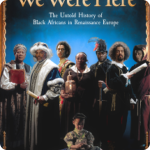
- Fred Kuwornu
- 125 Frick Fine Arts Building
As part of the Unmasking Prejudice: Confronting Antisemitism, Islamophobia, and Racism Across Europe Spring Lecture Series FILM: We Were Here - The Untold History of Black Africans in Renaissance Europe, exhibited in the Central Pavilion directed by Adriano Pedrosa at the 60ᵗʰ International Art Exhibition of the Venice Biennale, sheds light on the overlooked presence of African and Black individuals in Renaissance Europe, highlighting their depiction in masterpieces by some of the era’s most celebrated artists. How did they come to Europe? Why were they portrayed? Were they truly all servants or slaves? If the Black faces portrayed in these Renaissance masterpieces could speak, what would they tell us? More Info: https://www.wewereherethefilm.com
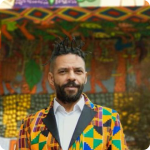
- Global Hub
Meet and Greet with filmmaker: Fred Kudjo Kuwornu is an Afro-Italian and U.S. multi-hyphenate socially engaged artist, filmmaker and scholar based in New York. His work bridges past and present, exploring identity and race through historical remixing of archival materials. Kuwornu's films have been exhibited at the 60ᵗʰ Venice Art Biennale (2024), Museum of Moving Image (NY), Library of Congress, and international film festivals. More info: https://www.fredkuwornu.com Light Refreshments will be served.

- Anna Sukhanova
- Global Hub

- Daniel Briggs, Lauren Herzer Risi
- 4130 Posvar Hall
The UN’s Intergovernmental Panel on Climate Change recently predicted that global average temperatures will rise 1.5 degrees Celsius above preindustrial levels in the mid-2030s. Over the last decades, a global network of scholars, policy makers, activists, and others have organized to offer ways to mitigate and even reverse the effects of climate change. What offramps can these solutions and movements offer our collective humanity? “Eurasian Environments” seeks to provide some reflections to mark the UN’s 2024 Climate Change Conference in Baku, Azerbaijan. This series will examine social justice and sustainability efforts to address climate change by putting scholars of Eurasia in conversation with their peers specializing on Africa, the Americas, Asia, and Europe. The series will comprise six events that will illuminate the challenges and possible solutions to climate change in Eurasia in regional and global contexts. This event is part of the Eurasian Environments: Climate Justice and Sustainability in Global Context series.
- ‹ previous
- 3 of 51
- next ›
